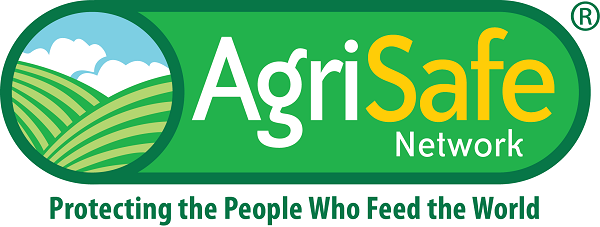AgriSafe Learning
Safety in the Field: Addressing Workplace Sexual Harassment for Farm Workers
Recorded On: 09/25/2020
-
Register
- Non-member - Free!
- Member - Free!
Thirty-six percent of the 3.4 million producers counted in the census are women. Education will focus on all women including farmworker women and their employers on reporting violent incidents to authorities, making employees aware of their legal rights, safe work practices, medical referrals, treatment, and options including counseling if needed.
Intended Audience: This training is intended primarily for health and safety professionals including but not limited to owner/operators, safety officers or specialists, managers, supervisors, safety coordinators, health safety and environmental interns and any person or persons who serve as safety personnel in an agricultural setting.
Objectives Upon completion of this webinar, participants will understand the following concepts:
1. The scope and nature of workplace violence occurring in agriculture today.
2. Employers' responsibilities in addressing workplace violence and implementing preventive measures.
3. Effective strategies and interventions that can make the workplace safer and more responsive to employee-victims.
This material was produced under grant number SH-05172-SH9 from the Occupational Safety and Health Administration, U.S. Department of Labor. It does not necessarily reflect the views or policies of the U.S. Department of Labor, nor does mention of trade names, commercial products, or organizations imply endorsement by the U.S. Government.
Knesha Rose-Davison, MPH
Public Health and Equity Director
AgriSafe Network
Mrs. Knesha Rose-Davison serves as the Public Health and Equity Director for AgriSafe Network. She has over 17 years of public health experience in maternal and child health, community health, health disparities, and advocacy. In May 2016, she joined AgriSafe Network as their health communications director, quickly growing into their public health programs director, where she managed employer-employee safety training for youth working in agriculture, opioid safety for health providers and agricultural workers, and women’s health topics. Knesha obtained her Bachelor of Science in Biological Sciences (2002) and a Master of Public Health (2006) from Northern Illinois University. In June 2016, she obtained a certificate in Agricultural Medicine focused on rural occupational health, environmental health, and safety. She is a member of the American Public Health Association and the Louisiana Public Health Association, where she serves in leadership. Knesha is passionate about serving vulnerable populations and ensuring health access and equity, and she aligns all her work with these causes.
Dennise Drury, MPH
Outreach and Education Specialist
Pacific Northwest Agriculture Safety and Health Center (PNASH)
Dennise Drury is the Outreach and Education Specialist at the Pacific Northwest Agriculture Safety and Health Center (PNASH) She has a background in environmental science and a passion for increasing the inclusivity and accessibility of science and research for Latino communities. In her current role, she works in collaboration with researchers, community organizations, and agricultural stakeholders to coordinate the Center's communications and educational activities. She has a passion for developing and evaluating workplace interventions to improve the health and safety of farmworkers. She is currently working on developing an evaluation of the Basta! Prevent Sexual Harassment in Agriculture worksite training and toolkit created in collaboration with the agricultural community.
Jody Early, Ph.D., M.S., MCHES
Associate Professor, Faculty Coordinator, Health Education and Promotion Minor, School of Nursing and Health Studies, University of Washington Bothell
Dr. Jody Early is an Associate Professor of Health Studies and an affiliate faculty in Gender, Women and Sexuality Studies and the Pacific Northwest Agriculture Safety and Health Center at the University of Washington Bothell and Seattle campuses. She currently serves as lead faculty for the Health Education and Promotion minor in the School of Nursing and Health Studies and is a former Associate Director of UW Bothell’s Teaching and Learning Center.
Over the last 25 years, Jody has dedicated her life to improving health equity and higher education. A Master Certified Health Education Specialist (MCHES), Jody’s research, teaching and praxis largely explore structural and social ecological factors that impact the health and well-being of individuals and populations, especially among women and Latinx communities. Her work, both in and outside of the academy, has allowed her to collaborate with communities to design, implement, and evaluate, culturally tailored health education interventions and strategies, and to involve her students in the process.
Key:
| Access Date | Quiz Result | Score | Actions |
|---|
Quick Search
Technical Difficulties
Submit a help ticket if you need technical assistance.
Having Computer Issues? Please check your internet browser and security settings to allow permissions for this website. Browsers: Microsoft Edge version 40 or higher; Chrome version 60 or higher, Firefox version 50 or higher; or Safari version 10.1 or higher. We recommend using Google Chrome or Firefox as your browser.
